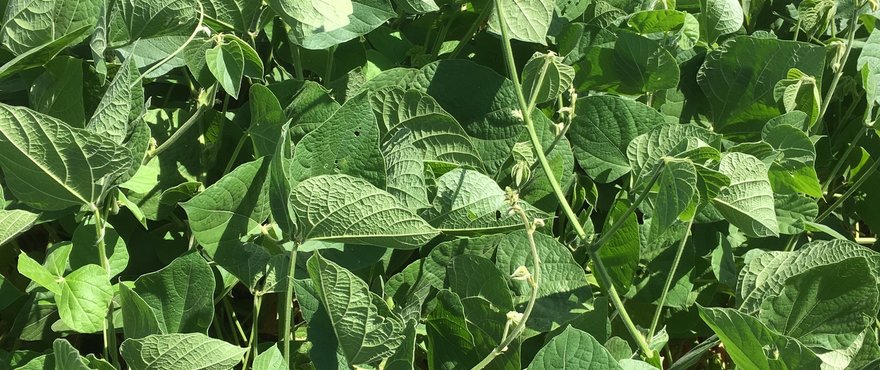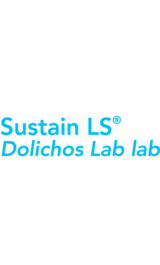Download a copy of the Sustain LS® dolichos Lab Lab factsheet.
Sustain LS® is a new Australia bred dolichos Lab Lab variety that was selected for a more prostrate growth habit and increased yield over common varieties. The prostrate and dense growth habit of Sustain LS® makes it an excellent companion to forage sorghums or grasses that provide structure for it to grow up. Late maturity of Sustain LS® extends the feed window towards the Autumn feed gap and maximising forage yield while also maintaining high forage quality. The breeding work reduced leaf and stem hairs and reduced seed size which enhances stock acceptance and maximises seeds per kilogram to the grower and reducing sowing costs. Sustain LS® can be used for grazing, silage, hay production, in combination with forage sorghum or millet or as a high yielding green manure/cover crop to assist with rotations and building soil health.
Key features
- Proprietary “Rongai” type Dolichos Lab Lab
- Similar maturity to Rongai
- More prostrate growth
- High leaf density
- Small seed size, more seeds per kilogram
- Ideal for combination crops or straight stand
Agronomy
Lab lab has the ability to fix high levels of nitrogen, over 150kg N/ha under irrigation, when inoculated with the correct strain of rhizobia (Group J).
Lab lab will respond positively to applications of Phosphorus fertiliser at planting when sown on low-moderate P soils. Application rates will vary depending on soil P levels.
Forage production can vary from around 500kg DM/ha in marginal dryland conditions up to more than 5,000kg DM/ha in irrigated or high rainfall zones. High yield potential makes Lab lab an excellent candidate for green manure cropping.
Typical whole plant forage quality is around 17-20% Crude Protein, 9.0 – 10.0 Metabolisable Energy and 38 – 50% Neutral Detergent Fibre.
Sowing rate
15 – 30kg/ha as a straight crop
5 – 10kg/ha as a component in a mix
Plant Breeders Rights (PBR): This variety is registered under Plant Breeders Rights (PBR) in Australia. Unauthorised commercial propagation or any sale, conditioning, export, import or stocking of propagating material is an infringement under the Plant Breeders Rights Act (1994). Any breach of this legislation will leave the grower liable for prosecution.
Disclaimer: The information presented in this brochure is from official and other sources and is considered to be reliable. It is provided in good faith and every care has been taken to ensure its accuracy. Barenbrug does not accept any responsibility for the consequences that may arise from the acceptance of recommendations or the suggestions made.



